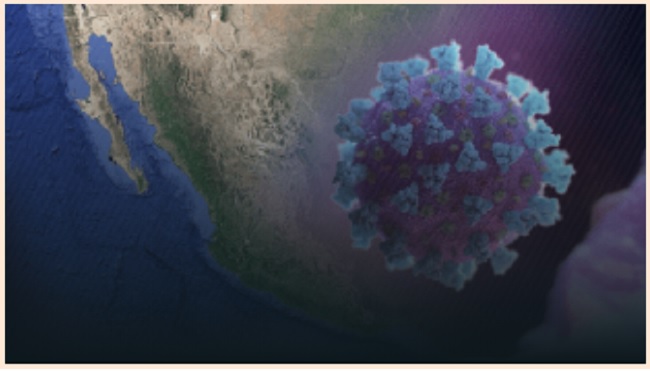Two years into his term, López Obrador faces two pandemics that feed and are fed by inequality, but his policies fail to prevent this.
by Viridiana Ríos for El País.
López Obrador closes two years of his electoral victory with the need to resolve not one pandemic, but two pandemics. First, the coronavirus, which has caused 27,769 deaths, is more deaths per capita than 90% of the world’s countries. Second, homicides. From March to May, 7,506 people were murdered in Mexico, a 150% increase over 2006.
The impacts of the two pandemics are even more evident when we look at the number of years of life. Considering the average life span, in Mexico ranges from 70 to 79 depending on the state and gender, the coronavirus has claimed 438,000 years of experience and the murders 113,000. Compared to the mortality caused by other diseases, this positions the coronavirus as the other disease with the highest human costs for Mexico and the first among women. Among men, homicide is the cause of the most significant loss of life years.
Both epidemics share some characteristics. A complex and very imperfect system to measure them, a strong correlation with the lack of capacity of the Mexican State, and above all, both feed and are fed by inequality.
The poor die more from coronavirus. Preliminary studies have shown that one of the most correlated variables with the probability of death from the virus is living in overcrowded conditions, that the lethality practically doubles in municipalities where more than 80% of the population is poor, and that contagion grows more in popular sectors.
It is also known that the coronavirus will have a brutal impact on poverty. It is estimated that by the end of the pandemic, Mexico will have between six and 11 million more impoverished people. The effects are already being strongly felt. It is estimated that Mexico has lost 12.5 million jobs and that, among those who lost their jobs, income decreased. From March to April alone, the country went from having 22% of people earning the minimum to having 26%.
The pandemic of violence is also particularly damaging to weak strata affected by the activities of the drug cartels. According to SEDENA, 60 percent of opium production is concentrated in Guerrero, a state where 67 percent of people live in poverty. The dispute over territories made the state one of the most violent in the country in 2017, concentrating 9% of the homicides even though it has only 2.5% of the country’s population.
Recent changes in U.S. drug use preferences have doubly victimized poor drug-producing communities. A reduction in demand for opium has spread poverty in the area. Farmers in opium-producing areas report that, with falling opium prices, they can no longer make attractive profits by buying fertilizers.
Academic studies have also identified links between inequality and violence. In fact, for every point of increase in the inequality indexes, the homicide rate increases by 36 points. Perhaps for the same reason, the emergence of self-defense is frequent in Mexico’s most unequal municipalities.
The Mexican Government has not been able to reduce either pandemic because it has opted for austerity in the face of both. Public spending has increased by only 0.8 points of GDP over the past year, and except for the provision of food supplies, there is no single federal program to support the unemployed. In other countries, 12- or 15-point programs have been implemented.
The budget for public security, although it has increased, remains extremely precarious at only 0.43 points of GDP. This is a deficient expenditure. Police officers in Mexico are precarious workers, with inhumane working hours, and sometimes forced to finance part of their equipment.
Moreover, the security bet is on the militarization of the police. With a decree issued in May, the Government is trying to use the Army and navy for public security work. This is worrying because the Army is not trained to be the police force and to deal with ordinary crimes. How cartels are dealt with is not the same as how ordinary citizens should be regulated.
Mexico lies immersed in a vicious circle where both violence and the coronavirus are pushing inequality and feeding on it. And where tools that are being used to temper the deaths are not working because they are based on the false premise that austerity and militarization with the right remedy.
A change, of course, is urgently needed. Only an unprecedented increase in health spending will enable the pandemic to reduce its human cost. Combating violence also requires an increase in the security budget and comprehensive programs to discourage young people from being drawn into illegality by the lack of opportunities in labor markets.
For El País
Viridiana Ríos
—
Political analyst. Columnist for El Pais and NYTopinion. Writer for ExpansionPolitics. Teacher at HarvardSummer fellow at IWFglobal, Harvard Ph.D.



